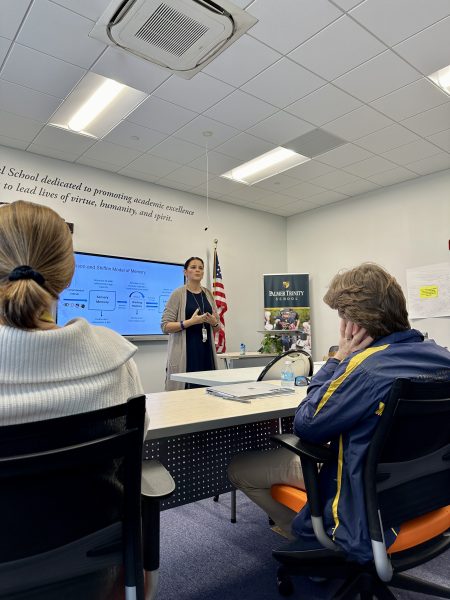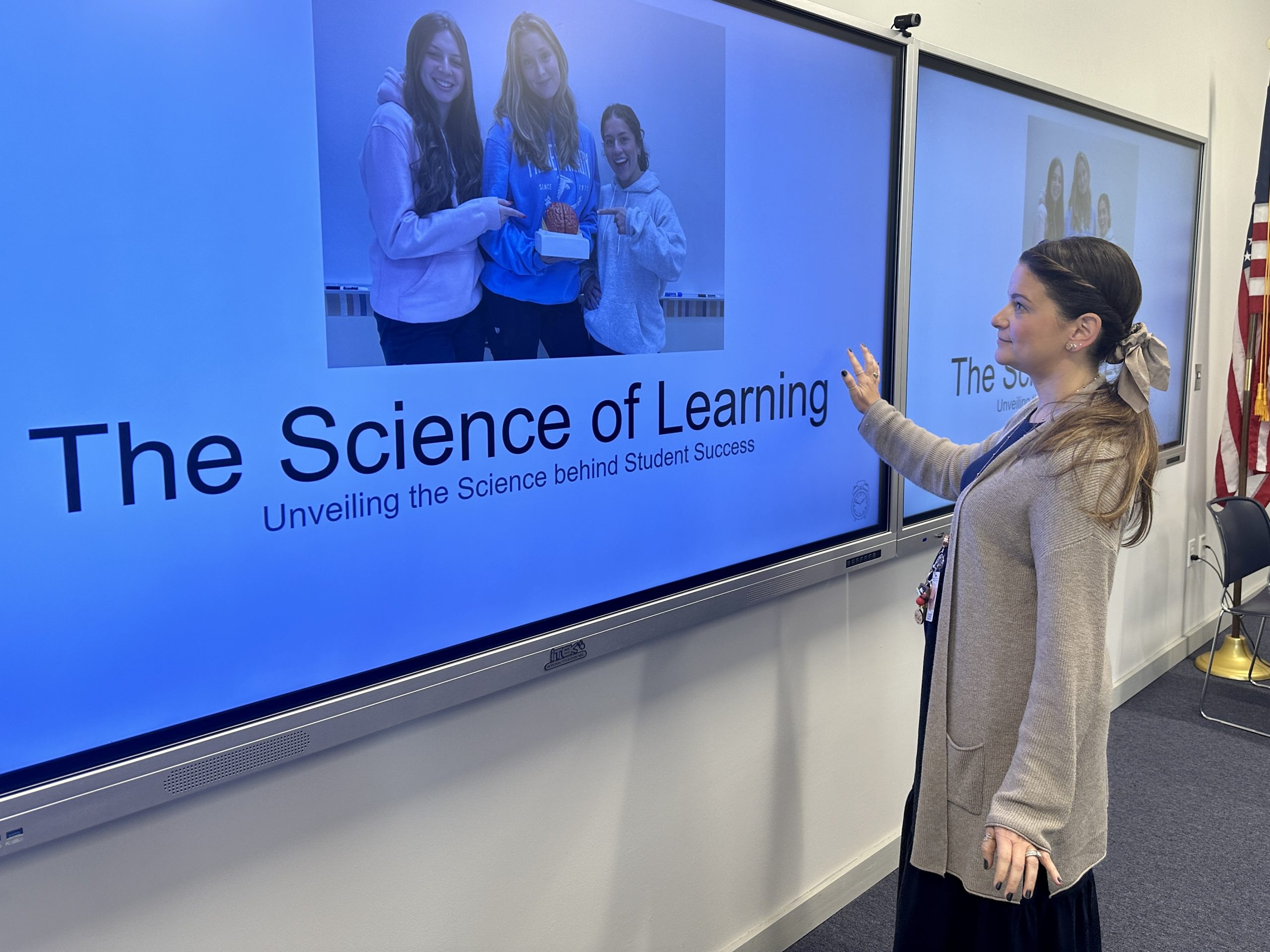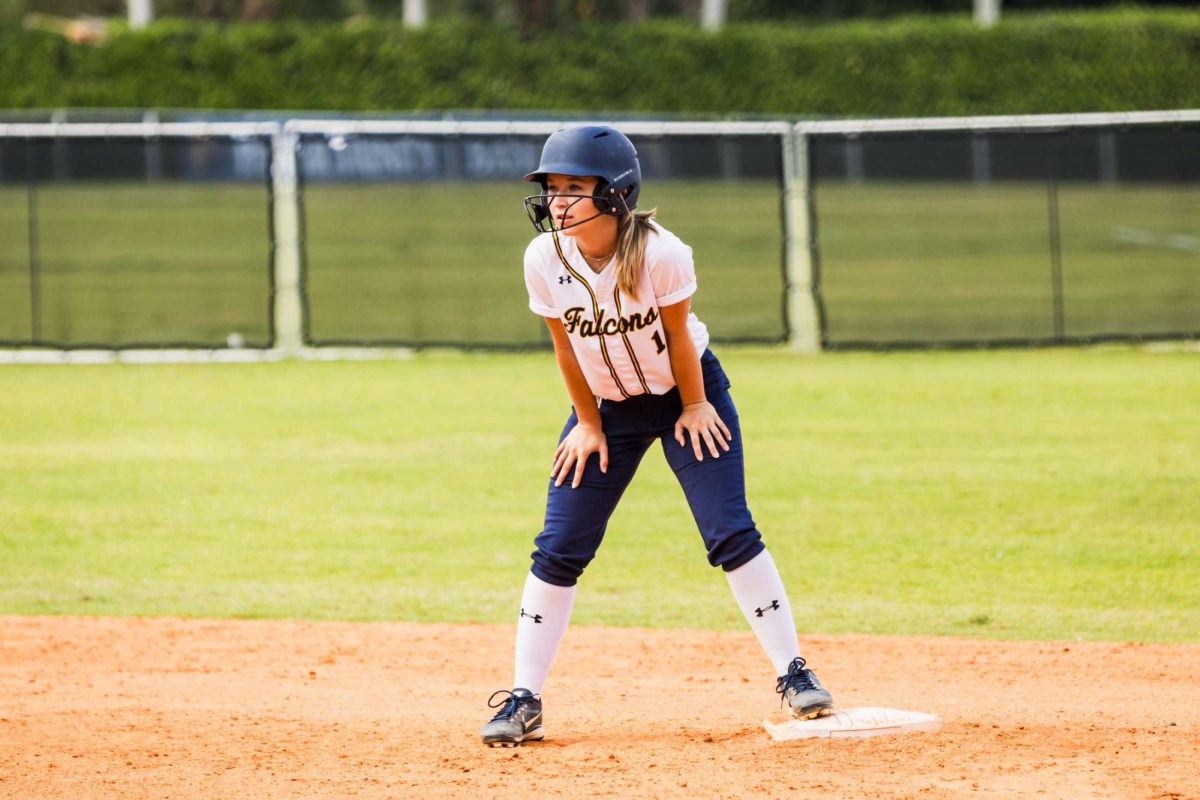
For AP Psychology teacher Cristie Vassilaros, effective studying begins with understanding how the brain works.
A psychology major in college, Vassilaros is teaching AP Psychology this year for the first time and has gathered research on how students can build habits to succeed in their academics by being aware of how the brain works best. She has presented her findings to her students, as well as to the middle school faculty and staff during a professional development session on Oct. 18.
“My top tip would be to evolve your study habits one strategy at a time,” Vassilaros said. “Pick one attainable, small goal that you can achieve on the next quiz or the next test. Try it out, see if it works. And then keep it or change it or adapt to what you feel would help you better for the next one.”
Vassilaros also teaches her students that studying by re-reading notes is ineffective because it provides your brain with a false perception of the material. What students should be doing, she said, is utilizing their retrieval memory by testing themselves. Students can do this by practicing with flash cards or using online websites like Quizlet. This way, students are understanding and applying their knowledge, not just memorizing material.
“I used the study methods that we learned in Psych to study for my history test and I’ve been getting As on my tests,” AP Psychology student and senior Sarah Bayas said.
Vassilaros also advises students to do a “brain dump,” meaning that, upon beginning to study for an assessment, the student will write down everything they know onto a sheet of paper. Then, they will review their notes and see what they’re missing on that sheet so that they can focus on mastering specific topics that they’re not as familiar with. This way, students can then use flashcards to study those particular topics and, ultimately, have a more effective study session.
According to Dr. Caroline Kuepper-Tetzel, “the aim of all of this is to become a self-regulated student and to adopt a healthy study routine.”

Study habits evolve one strategy at a time, Vassilaros said. If students little by little practice these strategies, then eventually they will learn efficient study skills and be more successful in their academics.
“I don’t want studying to be an extra stressor. I want students to not study harder, but study better,” Vassilaros said.



